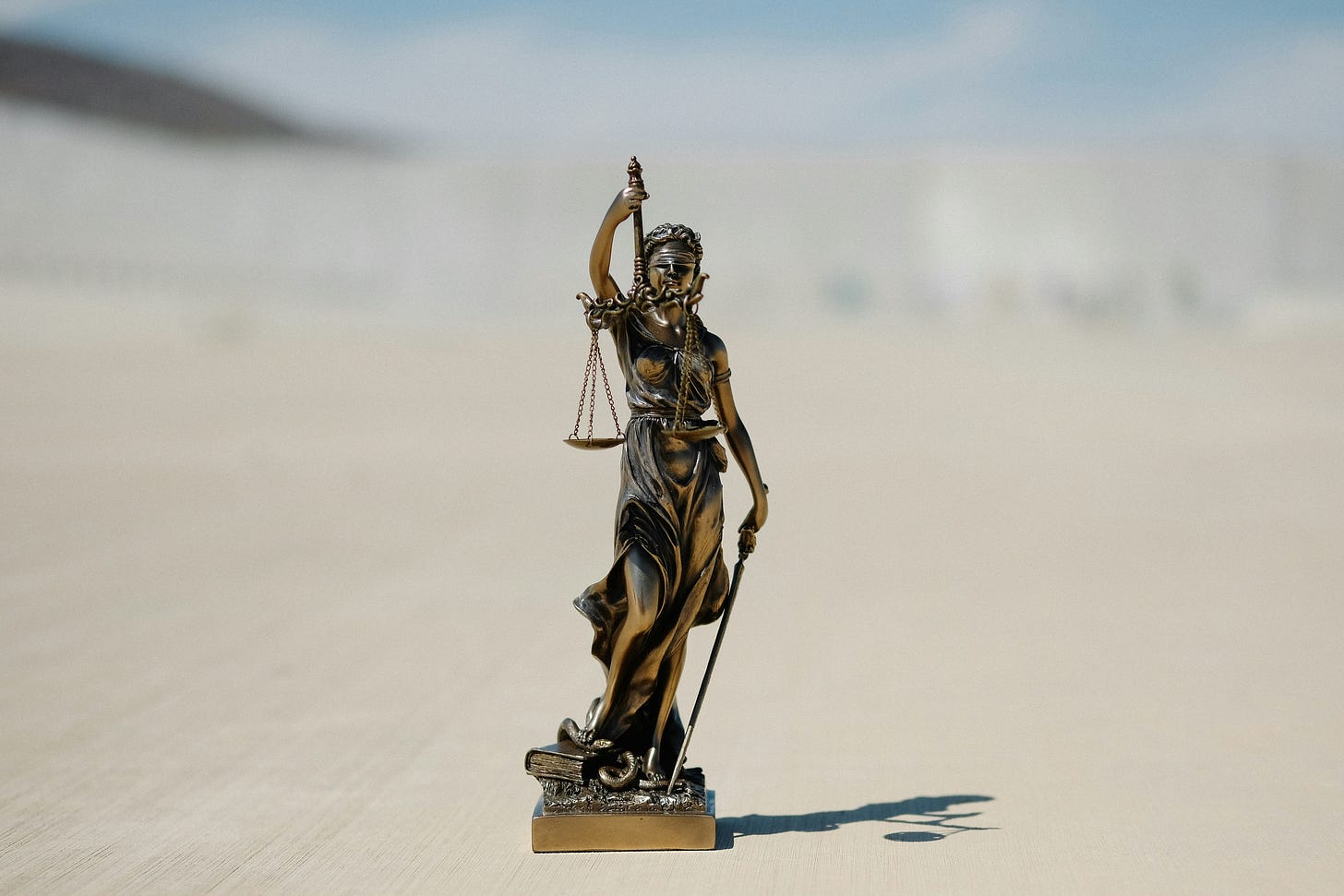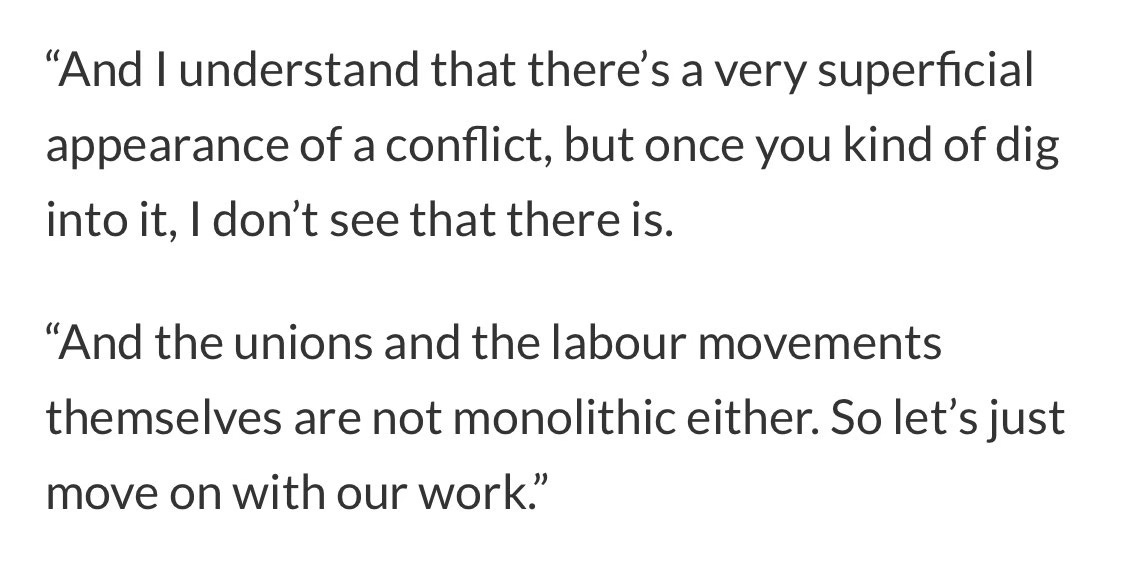Council Doesn't Understand Impartiality
Or They Just Don't Care; Either Way, It is Not Good

The daytime council meeting last week was dominated by the Susan Kim code of conduct report and the fallout in the form of sanctions approved by council. However, there was another item on the Committee-of-the-Whole agenda that was worth taking a closer look at and perhaps did not get the attention it deserved. The issue was council remuneration and the panel that has been appointed by staff to review the process and provide recommendations moving forward.
What is at issue is the three members who make up the panel itself. One of the members, Stephanie Smith, is a former president of the BCGEU. The issue, as was raised by Councillor Stephen Hammond, during the Committee-of-the-Whole meeting was that Smith was president of the union during the previous election when the current council was struck. In the course of that election, the BCGEU nomination committee and the Victoria Labour Council (which is connected to BCGEU, as well as other unions in our city) openly endorsed several members of council. In fact, they endorsed the very same members who actually raised the remuneration issue earlier this year and caused the public outrage which followed, leading to this panel being struck in accordance with UBCM guidelines.
In other words, Smith’s presence on the panel casts doubt over the impartiality of the entire panel and any report or recommendations that it produces. This point was raised by Hammond in the form of a question to staff. The answer was appalling and would have sent anyone with an ounce of understanding of how impartiality works into a tizzy. Staff said that they support the appointments and do not question the integrity of Stephanie Smith.
That is well and good. It also has nothing to do with impartiality. The actual conduct of a person, their history managing issues, etc is immaterial to impartiality because impartiality is a perception. Here’s an analogy that was taught to me to better understand the concept when I did training to become a Presiding Officer in the Royal Canadian Navy to adjudicate offenses under the National Defence Act (essentially a judge for summary trials under the NDA, which is federal legislation).
Suppose there is a judge in a very small town. And the judge is hearing a case involving a resident and the owner of a large business. The judge and the owner are friends, they golf every week together. This is well known in the community. The resident has grounds to question the impartiality of the judge. The resident does not have to prove that the judge and the business owner actually collude and talk shop during their golf games— in fact the judge maintains that he never talks about work on the course. But that is not what matters. What matters is the perception that the resident is not being treated fairly because of the relationship that exists between the judge and the business owner. Is it improper for the judge to have this relationship? Nope, of course the judge is free to have friends and have a social life. Would it be proper for the judge to remain on the case? No it would not be proper, because the judge would be setting up his own judgement for potential failure and questioning because of his lack of impartiality regarding the case.
Now in this instance, our judge cares a lot about the law, and understands that removing himself from the case is not indicative of his integrity or ability to oversee the law properly. In fact, he understands that seeing the potential impartiality issue and removing himself is actually a sign of his integrity and professionalism; not the other way around. Because he cares so much about the law and the integrity of the judgements from the courts, he removes himself to protect the institution, the final judgement and the entire legal system.
When staff was questioned on the possible impartiality of Stephanie Smith the answer was that Stephenie Smith is a good person. But you can be a great person—you could be Terry Fox himself—you’d still be implicated in impartiality because of the relationship you have with councillors who are not just on council but were the very ones raising the issue and seeking a pay increase in the first place.
Victoria city staff obviously have no idea how impartiality works. That, or they are being willfully ignorant to the reality of impartiality which doesn’t pass any smell test, because why push for a person whose impartiality could be called into question to be part of a citizen panel unless you are seeking something out of it? Or you actually wish for the outcome to be cast into doubt. Or you just don’t care.
Council as a whole certainly do not understand impartially. Councillor Susan Kim jumped into debate during the presentation from staff on the matter and said that although one could see a conflict on the surface, if you scratched you would find there is none. But there is no need to scratch for impartiality. The fact that even she sees a potential issue on the surface should mean something and it does.
But Kim’s language was careful, she said there was no conflict. And she is referring to a conflict of interest. Seems to me that all council does understand these days is conflict of interest and probably because that is one of the only ethical items to be enshrined in local law through our Community Charter. Impartiality doesn’t have a law because it is baked into our common law system, in someways it is the grease that keeps the whole justice system moving effectively including how legislation is crafted properly.
The reality is that there is an issue with Stephanie Smith being on the panel. Victoria is full of a great many qualified and capable union leaders who could easily fill the role of “union representative” which was requested specifically by council when the panel was being drafted. Union leaders who are not implicated with current council members and could ensure a clean outcome from this panel.
I do not doubt for a second the integrity and capability of Stephenie Smith, you do not become the president of a union without something strong between your ears. But you also do not become the president of one of the most powerful unions in British Columbia without being political and having political connections. We do not need to wonder about this either, her union openly endorsed these individuals and they went on to raise the remuneration issue entirely on their own, bringing us to where we are today.
Whatever conclusion this panel draws, the results will be called into question. And I will be the first one in line to do it. They’ve given me the ammunition already before I’ve even seen results. Those who support and desire a pay raise on council care so much about the issue they are willing to wedge people and create angst over the panel’s findings rather than protect the entire process and ensure a clean outcome. And for what? Maybe because the final conclusion is already well known among those who are in the know…you might conclude that, but I couldn’t possibility comment on collusion like that, not at this point.






Great analogy about perception of conflict of interest. Excellent investigation/article!
Now City of Victoria, what does the perception look like when the City of Victoria is a paying member of a construction/real estate lobby that lobbies the government and includes among its paying members companies, where one or more employees have helped finance the election campaigns of one or more councillors? What does it look like, when the City of Victoria has often consulted the same lobby as a stakeholder?
What does it look like when councillors and/or staff have attended lobby events including luncheons, using taxpayer funds?